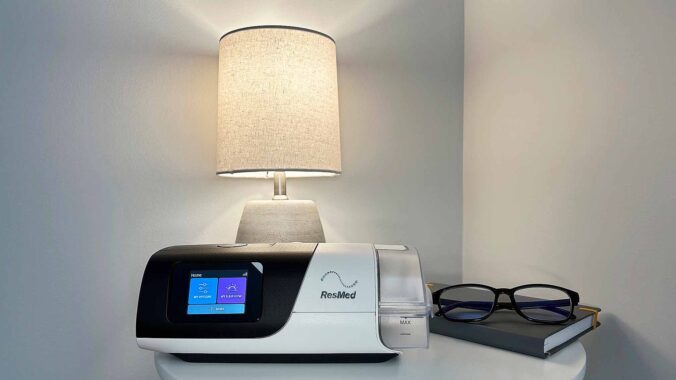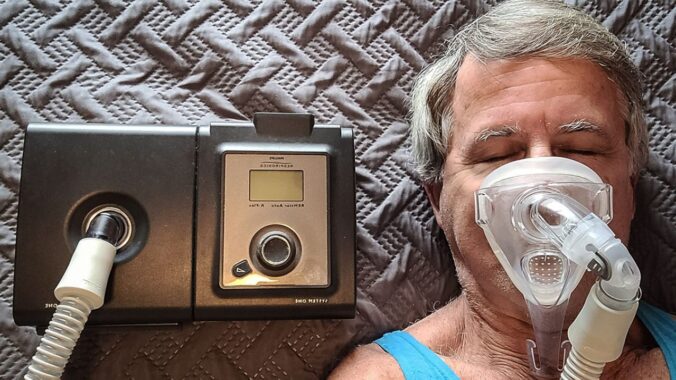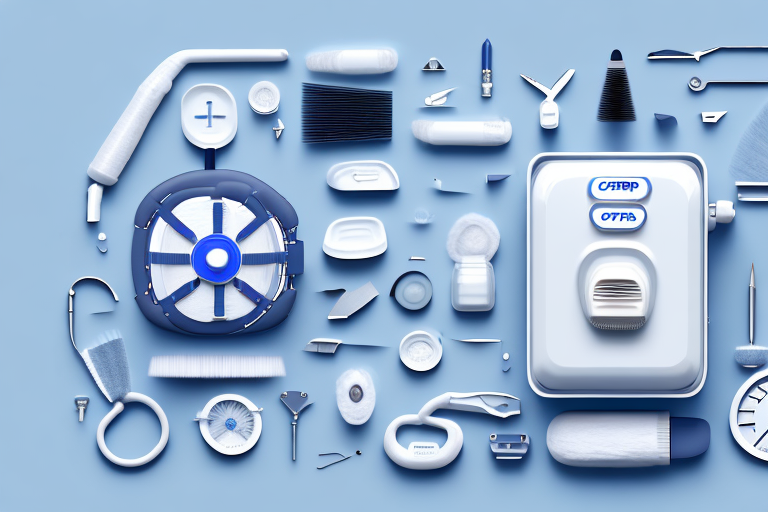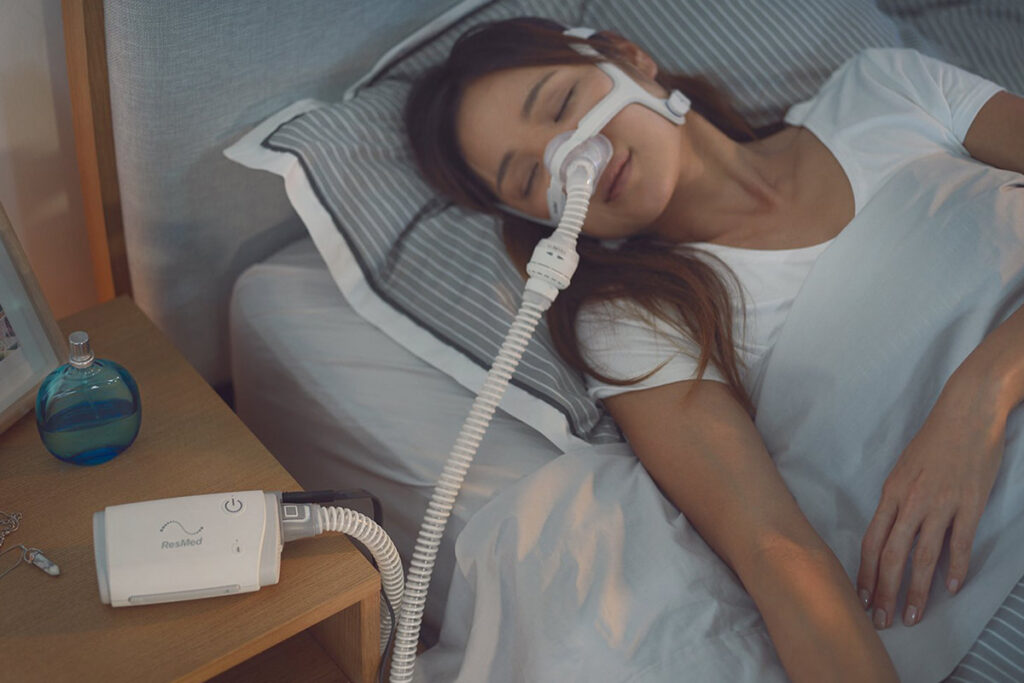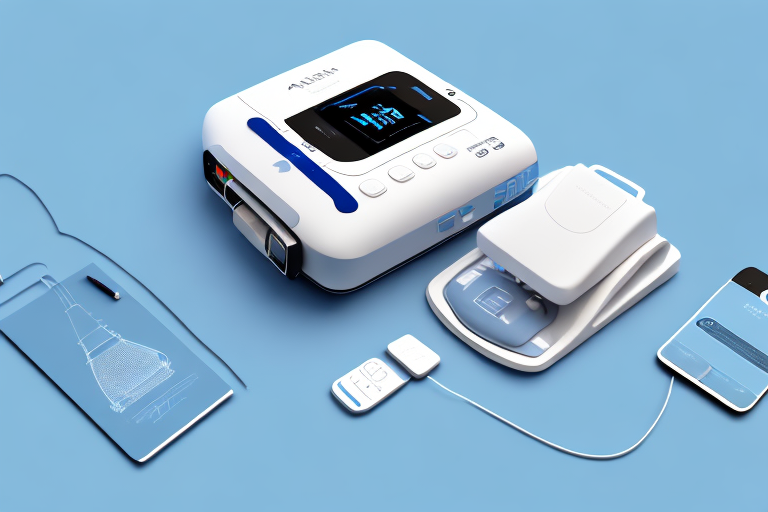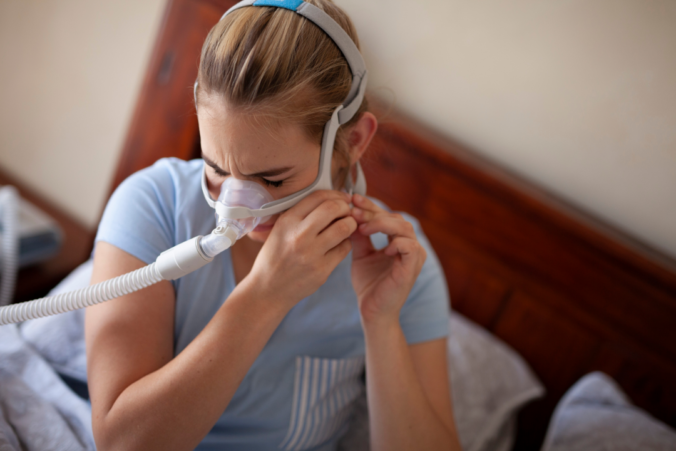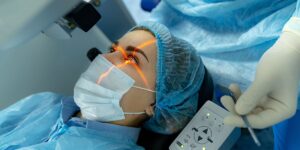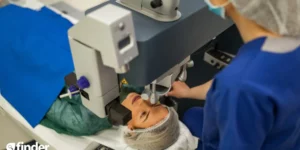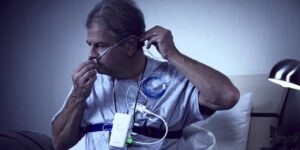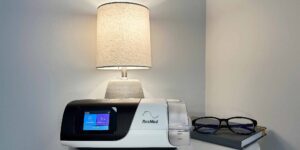Sleep apnea is a common sleep disorder that affects millions of people worldwide. It is characterized by periods of interrupted breathing during sleep, leading to a lack of oxygen to the brain and other parts of the body. These interruptions, known as apneas, can last for several seconds to minutes and can occur multiple times throughout the night.Fortunately, there are treatment options available for individuals with sleep apnea, and one of the most effective solutions is the use of sleep apnea machines. These devices, also known as continuous positive airway pressure (CPAP) machines, work by delivering a steady stream of pressurized air to the airways, keeping them open and preventing apneas from occurring.
Understanding Sleep Apnea and Its Treatment
Sleep apnea can have a significant impact on a person’s quality of life. Not only does it disrupt sleep, but it can also lead to a range of health problems such as high blood pressure, heart disease, and stroke. Therefore, it is crucial to seek treatment for this condition to minimize its effects and improve overall well-being.
One of the most common and effective treatments for sleep apnea is the use of sleep apnea machine. These devices have gained popularity over the years due to their ability to provide immediate relief and improve sleep quality for individuals with sleep apnea.
The Role of Sleep Apnea Machines in Treatment
Sleep apnea machines play a crucial role in the treatment of sleep apnea. They work by delivering a constant flow of pressurized air through a mask that covers the nose and/or mouth. This pressurized air acts as a splint, keeping the airways open and preventing them from collapsing during sleep.
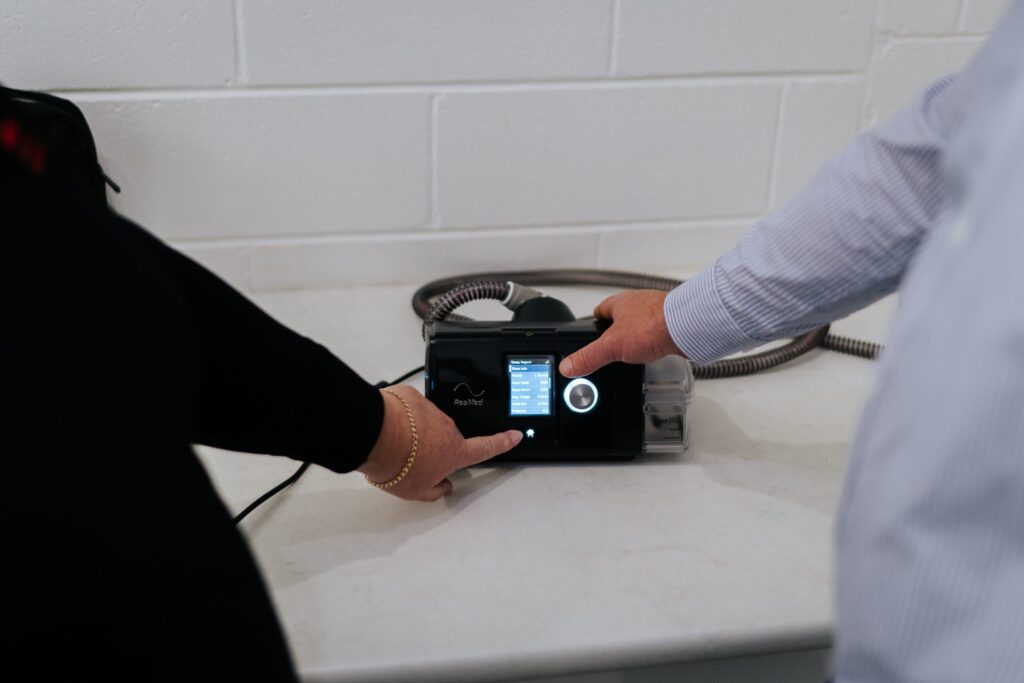
By keeping the airways open, sleep apnea machines effectively eliminate apneas and allow individuals with sleep apnea to breathe freely throughout the night. This not only improves sleep quality but also helps to reduce the risk of associated health problems. Learn more about the key to restful nights.
Moreover, sleep apnea machines are designed to be user-friendly and comfortable. The masks come in various sizes and styles to ensure a proper fit and minimize discomfort. Additionally, many machines have features such as humidifiers to prevent dryness and irritation in the airways, further enhancing the overall comfort of the treatment.
Different Types of Sleep Apnea Machines
There are several types of sleep apnea machines available on the market, each with its own unique features and benefits. It is essential to understand the different options to choose the one that best suits your needs.
Continuous Positive Airway Pressure (CPAP) Machines
These are the most common type of sleep apnea machines. They deliver a constant and steady flow of pressurized air throughout the night. CPAP machines are highly effective in treating sleep apnea and are often the first choice for healthcare professionals.
Bilevel Positive Airway Pressure (BiPAP) Machines
These machines deliver two levels of pressure – a higher pressure during inhalation and a lower pressure during exhalation. This can be beneficial for individuals who have trouble exhaling against the pressure of a CPAP machine. BiPAP machines are often recommended for those with certain medical conditions or who require higher pressure settings.
Auto-titrating CPAP (APAP) Machines
These machines automatically adjust the pressure based on the individual’s breathing patterns throughout the night. They are a popular choice for those who may experience varying pressure needs during sleep. APAP machines provide a more personalized treatment experience, ensuring optimal therapy throughout the night.
It is important to consult with a healthcare professional to determine the most suitable type of sleep apnea machine for your specific needs. They can assess your condition, consider any underlying health issues, and recommend the most appropriate machine to help you achieve restful and uninterrupted sleep.
Key Features to Consider in a Sleep Apnea Machine
When choosing a sleep apnea machine, there are several key features to consider. These features can greatly enhance your overall experience and ensure that you get the most out of your device.
Having a good night’s sleep is essential for your overall health and well-being. Sleep apnea is a common sleep disorder that affects millions of people worldwide. It is characterized by pauses in breathing or shallow breaths during sleep, leading to disrupted sleep patterns and daytime fatigue.
Fortunately, sleep apnea machines, also known as continuous positive airway pressure (CPAP) machines, can effectively treat sleep apnea by providing a constant flow of air pressure to keep your airways open while you sleep.
Comfort and Fit of the Machine
One of the most important considerations when selecting a sleep apnea machine is comfort. Since you will be using the machine every night, it is crucial to choose a device that fits well and does not cause discomfort or irritation.
When it comes to comfort, the fit of the machine plays a significant role. Look for a machine that comes with adjustable straps and cushioned masks to ensure a proper fit. This will help prevent any air leaks and provide a comfortable experience throughout the night.
Additionally, consider the weight of the machine and whether it is suitable for your sleep position. Some machines are designed to be lightweight and have a compact design, making them ideal for individuals who prefer to sleep on their side or back.
Noise Level of the Device
Another important feature to consider is the noise level of the sleep apnea machine. Some machines can be quite noisy, which can disrupt your sleep or disturb your partner.
Fortunately, advancements in technology have led to the development of sleep apnea machines that are designed to be quiet and minimize noise disturbances. Look for machines that have noise reduction features or are specifically designed to operate silently.
Having a quiet sleep apnea machine can create a peaceful sleep environment, allowing you and your partner to sleep soundly throughout the night without any unnecessary disturbances.
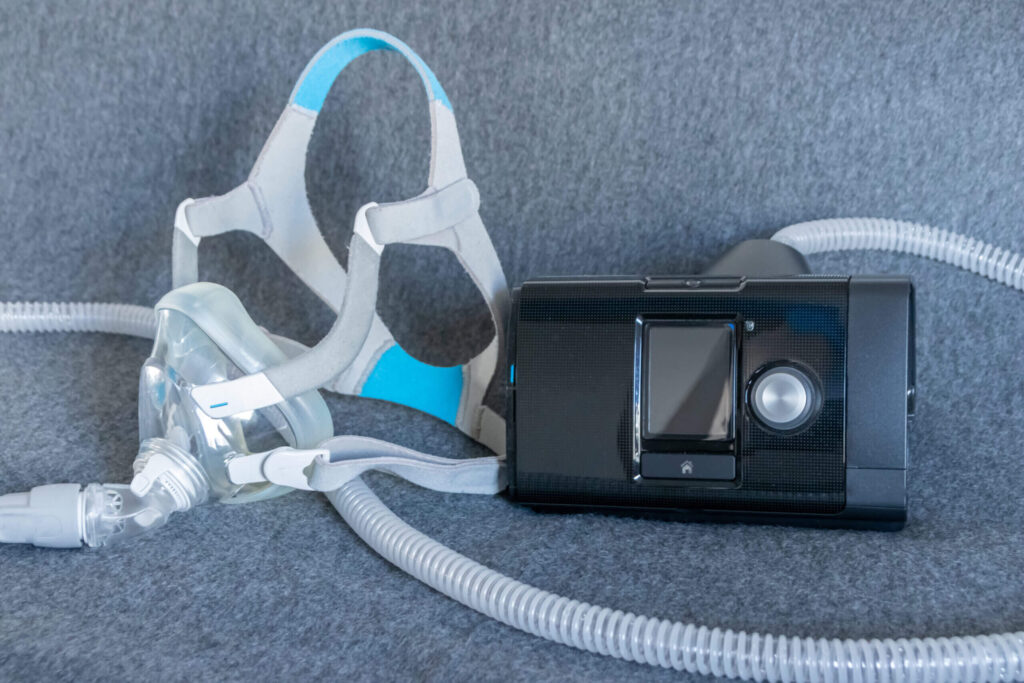
Portability and Travel-Friendliness
If you are someone who travels frequently or plans to take your sleep apnea machine with you on trips, portability is a crucial factor to consider.
Traveling with a sleep apnea machine can be made easier with the right features. Look for machines that are lightweight, compact, and easy to transport. Some machines even come with travel-friendly features such as travel cases or universal power adapters.
Having a portable sleep apnea machine allows you to maintain your sleep apnea treatment even when you are away from home. Whether you are going on a business trip or a vacation, having a machine that is easy to pack and set up can make a significant difference in your sleep quality.
In conclusion, when choosing a sleep apnea machine, it is important to consider factors such as comfort, noise level, and portability. By selecting a machine that meets your specific needs, you can ensure a restful night’s sleep and effectively manage your sleep apnea for improved overall health and well-being.
Advanced Features in Sleep Apnea Machines
In addition to the basic features, some sleep apnea machines come with advanced features that can further enhance your treatment experience. These features are designed to provide additional comfort and convenience for users.
Data Tracking and Reporting
Many sleep apnea machines now come with built-in data tracking and reporting features. These features allow you to monitor your sleep patterns, apnea events, and therapy compliance.
By having access to this data, you can work closely with your healthcare provider to make any necessary adjustments to your treatment plan and ensure optimal therapy effectiveness.
Humidification Systems
Some sleep apnea machines also come with integrated humidification systems. These systems add moisture to the air delivered by the machine, preventing dryness and irritation of the nasal passages and throat.
Humidification can greatly improve comfort during sleep and reduce common side effects such as nasal congestion or dry mouth. Look for machines with adjustable humidification settings to personalize your therapy.
Auto-Titration and Pressure Adjustment
Auto-titrating CPAP machines, as mentioned earlier, automatically adjust the pressure based on your breathing patterns. This feature can be particularly beneficial for individuals with varying pressure needs or those who struggle with fixed pressure settings.
Additionally, some sleep apnea machines also come with options for pressure adjustment during the night. This allows you to fine-tune the pressure to your comfort level and ensure an optimal therapy experience.
Maintenance and Cleaning of Sleep Apnea Machines
To ensure the longevity and effectiveness of your sleep apnea machine, proper maintenance and cleaning are crucial. Regular cleaning prevents the buildup of bacteria, dust, and allergens, which can compromise the hygiene and performance of the device.
Regular Cleaning Requirements
It is important to follow the manufacturer’s guidelines for cleaning your sleep apnea machine. Typically, this involves cleaning the mask, tubing, and humidifier chamber on a daily or weekly basis.
Use mild soap and warm water to clean the components, ensuring that they are thoroughly rinsed and dried before reassembling. Avoid using harsh chemicals or abrasive cleaners that can damage the materials.
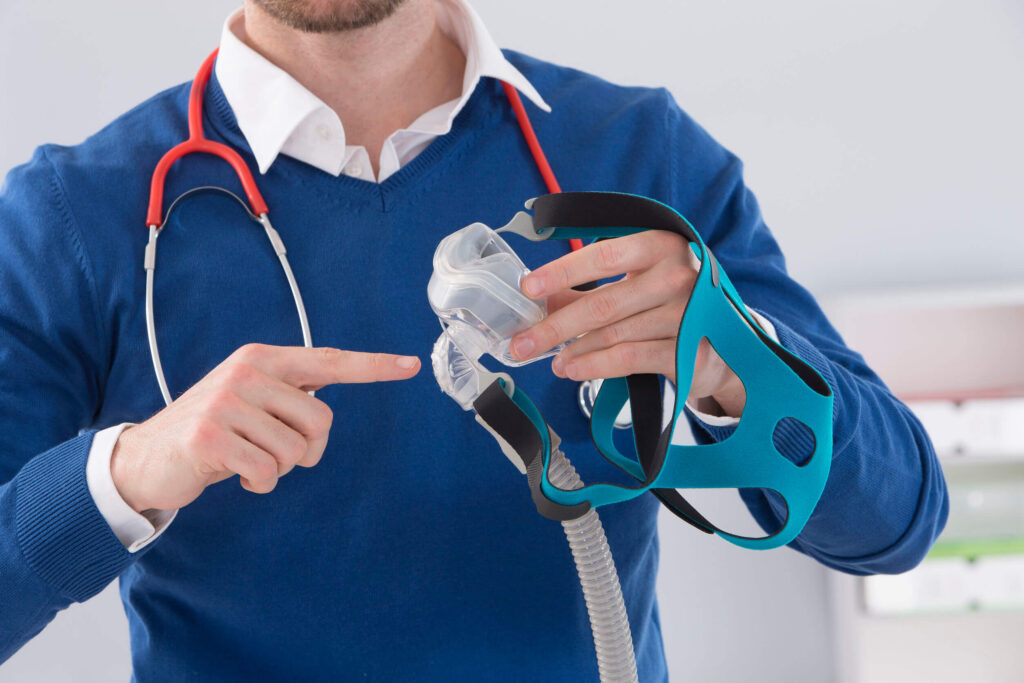
Replacement Parts and Their Availability
Over time, certain parts of your sleep apnea machine may need to be replaced, such as the mask cushions, filters, or tubing. Therefore, it is essential to check the availability and cost of replacement parts before purchasing a machine.
Consider opting for a machine from a reputable manufacturer that offers easy access to replacement parts. This will ensure that you can maintain your device without any hassle and prolong its lifespan.
Cost and Insurance Considerations
When investing in a sleep apnea machine, cost is an important factor to consider. Sleep apnea machines can vary significantly in price depending on the brand, features, and accessories included.
Understanding the Costs of Sleep Apnea Machines
The cost of a sleep apnea machine can range from a few hundred dollars to several thousand dollars. It is essential to set a budget that aligns with your financial capabilities and research different options within that price range.
Keep in mind that, while cost is a consideration, prioritizing the quality and effectiveness of the machine is crucial for long-term success in managing your sleep apnea.
Insurance Coverage and Reimbursement Policies
Before making a purchase, it is important to check your insurance coverage and reimbursement policies regarding sleep apnea machines. Some insurance plans may cover a portion or the full cost of the machine, especially if it is deemed medically necessary.
Contact your insurance provider to understand the specific requirements and documentation needed to file a claim. This will help you navigate the reimbursement process and alleviate some of the financial burdens associated with purchasing a sleep apnea machine.
Conclusion
When it comes to choosing a sleep apnea machine, there are several factors to consider. By understanding the role of sleep apnea machines in treatment, the different types available, and the key features to look for, you can make an informed decision that best suits your needs and preferences.
Remember to prioritize comfort, noise level, and portability when selecting a machine, and consider advanced features that can enhance your therapy experience. Additionally, proper maintenance and cleaning are essential for optimal performance and longevity of your device.
Finally, take into account the cost of the machine and check your insurance coverage to ensure financial feasibility. With the right sleep apnea machine, you can enjoy restful nights, improved health, and a better quality of life.

